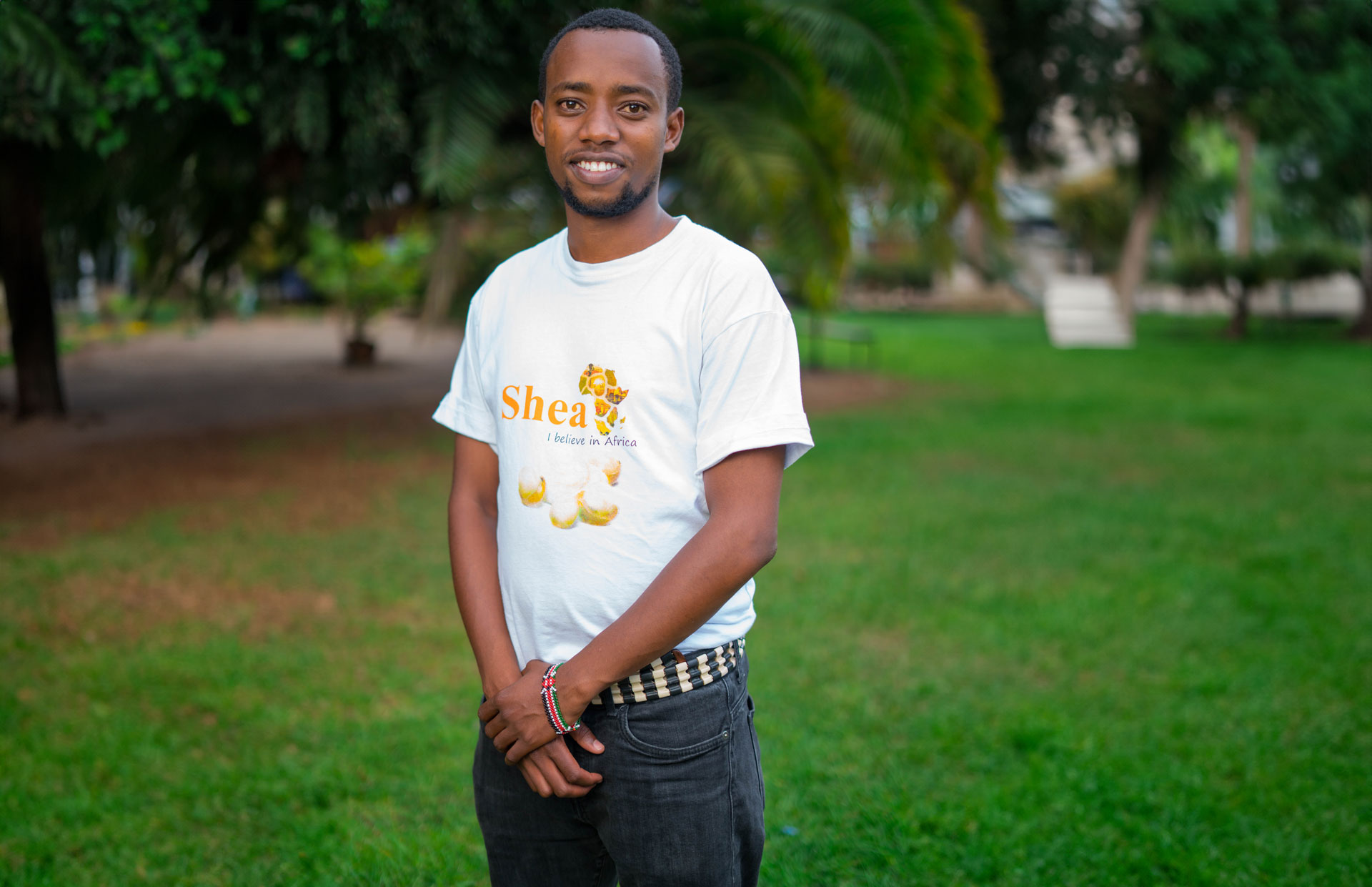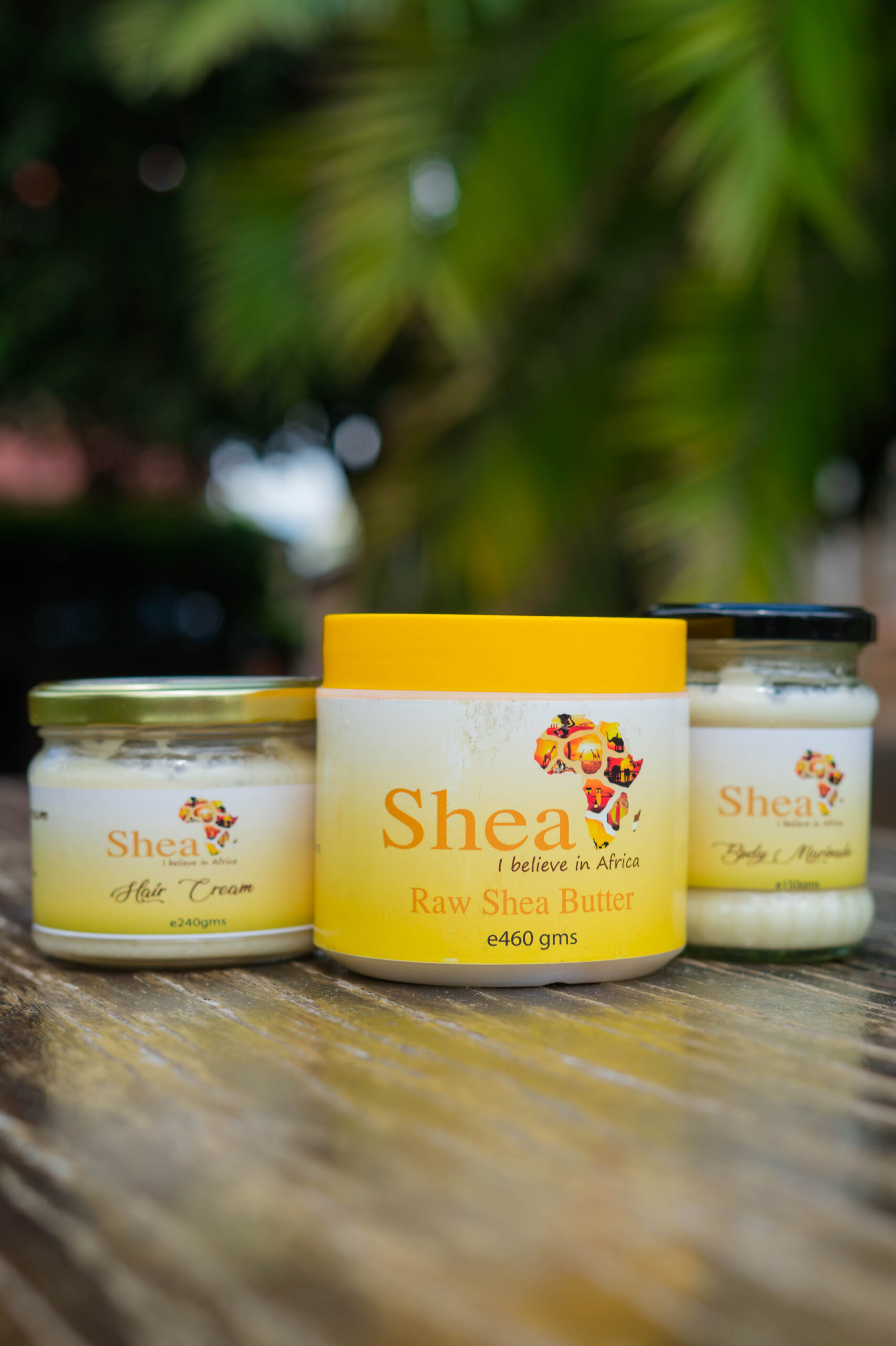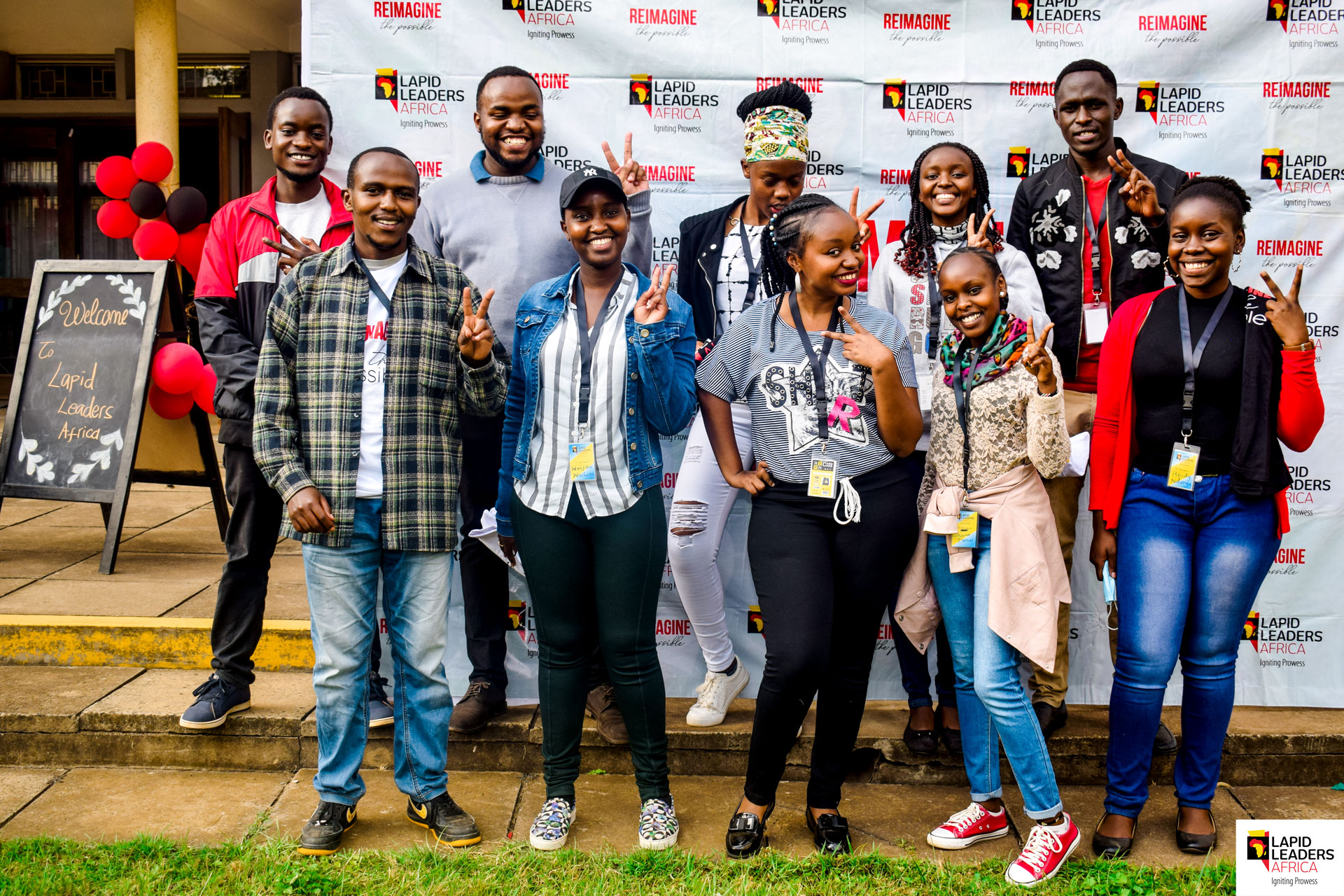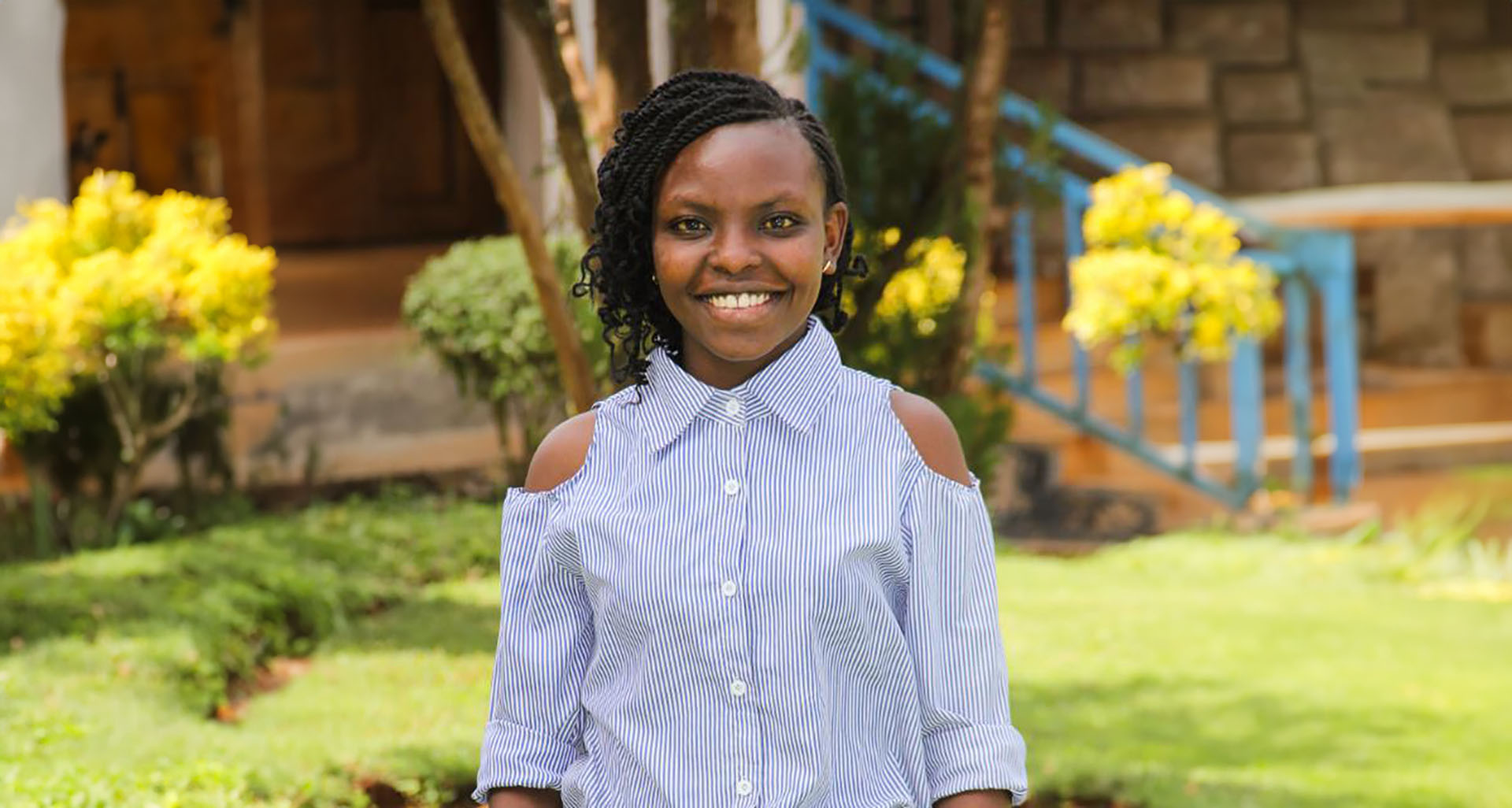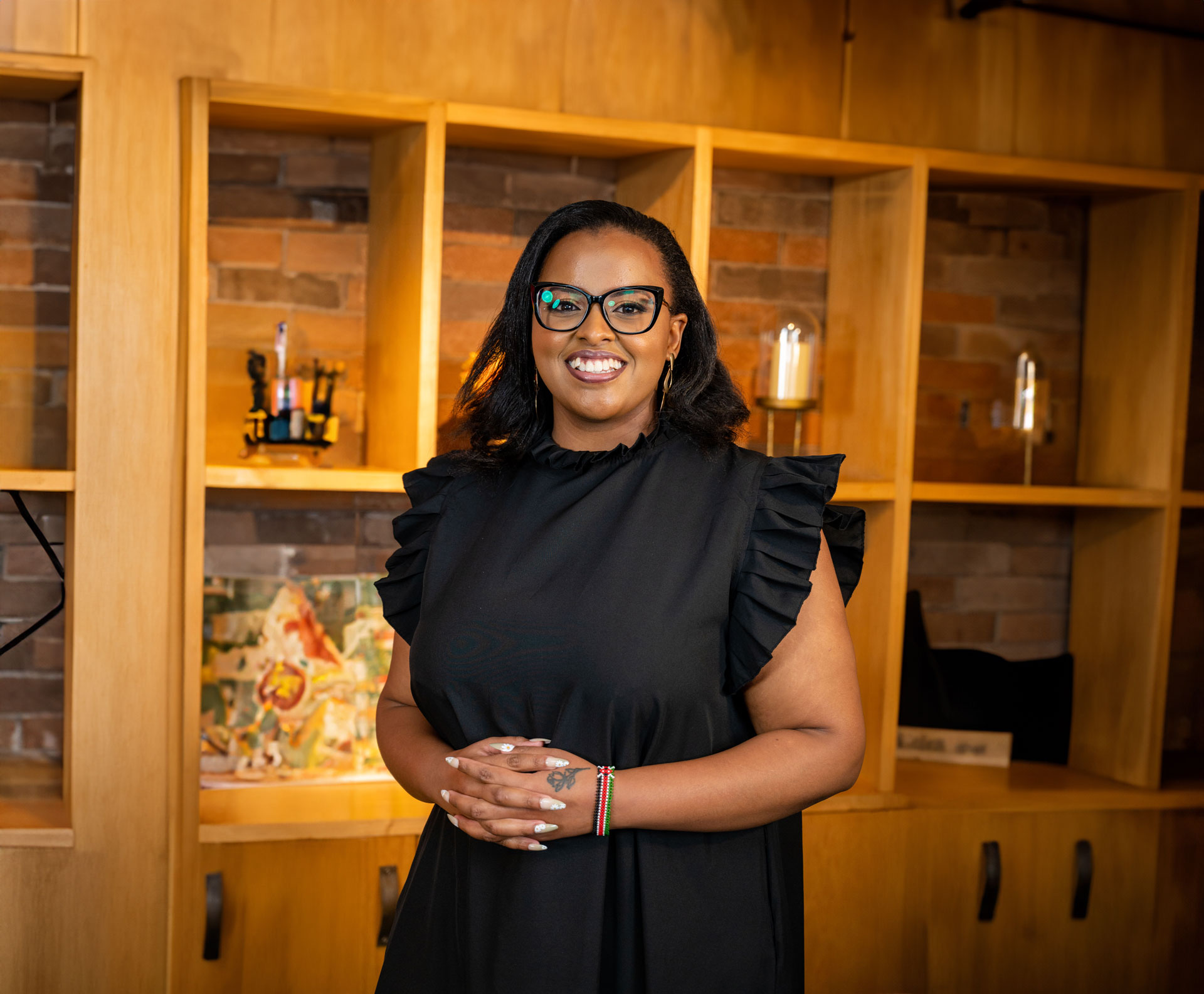Key Statistics
Company: Shea Africa
Founders: Naftaly Githinji, 24yrs and Martin Mwimbi, 30 yrs
Registered: January 2019
Industry: Manufacturing – Cosmetics
Employees: The founders
Services: Manufacturing of three main products – raw shea butter, hair cream and a body marinade.
Lapid Class: Cohort 7
The beginning
In July 2017, whilst in Uganda, for the Africa Experience trip which is part of the Lapid Program, a group of students met Lillian Olok, a craft business owner who mentioned that she had a group of women who made shea butter. Eight of them got interested, visited to see the process and within hours made decision to begin selling it back in Kenya. “As we watched the process of turning nuts into shea butter, the question in my mind was how can we sell this? I’d never heard of it but we had a meeting back in the hotel, came up with a name, raised KES 20,000, made and received the order in Kenya then went to River Road to buy packaging and began selling.” Naftaly notes. To their surprise, people were already familiar with shea butter and slowly began buying.
The Team
Within 6 months, four people had dropped out and by the end of 2018, it was down to just Naftaly and Martin. “Our first KPI was to sell, everyone had to sell the product! If you couldn’t sell then you weren’t part of the business which is how people fell off. Plus also others got jobs and busy with their goals. We saw the serious potential of the business which is why registered it early in 2019 as co-founders.” Martin notes.
The two have synergy working with each other, where Martin deals with sales and marketing whilst Naftaly handles the technical aspects like research and formulation. In the beginning, it was a matter of withstanding the pressure and the two of us have stood through some tough times. We have a lot of synergy even if our roles aren’t too formalized and keep meeting up regularly and talking to ensure we are on the same page, says Naftaly. “You also realize that you can’t do everything on your own strength as some challenges can overwhelm you. We have developed a personal relationship getting to know each other very well as friends which has immensely helped our business as we still both work part time on it.
The growth
Shea Africa’s main market comes through referrals from their loyal customers. They also sell online through social media and have seen growth in markets outside of Kenya receiving single orders between 10 to 40 Kgs. They have customers in Sudan, US and Zimbabwe which all began with word of mouth and someone experiencing their products.
The hurdles
Getting certified by the Kenya Bureau of Standards (KEBS) was their biggest headache. “For us to retail in hair salons or in outlets, the question of certification always came up. The process and expense of doing this wasn’t easy, an example is that we’d been doing packaging at my house but KEBS can only certify from a commercial property; plus many other requirements you have to meet.” Finally by the end of last year, all their products got certified. They also note that it’s been hard to sustain a cash flow as a startup because everything they make has to go back into the business thus have to contend with slow growth.”
We have improved our process and packaging. Initially, we had complaints of product spillage especially in a lady’s handbag as we used to melt the shea which takes long to harden and we didn’t have cold storage facilities. We no longer melt as our process has improved and we have much better packaging.” Naftaly adds. He continues, “A personal challenge I had was disclosing to my parents what I do. Once, when having a chat with my father, I mentioned that I was interested in the agricultural sector but his response shut me down completely as he couldn’t understand the connection between agriculture and economics, which I was studying. A friend to my parents is the one who finally told him that his son is selling some great beauty products which led them to ask about my business. They are now my biggest fans and of course winning the awards helps a lot too.”
The rewards
Shea Africa won two awards in 2019, the first was by the of 254 Youth Entrepreneurship Awards in the Manufacturing Category and the second was by the Kenya Business Awards where the The Kenya National Chambers of Commerce and Industry recognised them as a winning SME in manufacturing.
The founders note, “Of course emerging as a winner amongst bigger market players is exciting but the real reward is the feedback we get from our customers saying that their black spots, eczema or acne has improved or gone; asking us to not change or dilute the quality of our products. Those reviews help us in knowing we are doing something of value and keep us going. Our business will always be about solving problems in skin and hair care for our customers.”
The Covid effect
“Our sales went to zero at the end of March as we couldn’t import our main raw material thus no production due to the curfews and eventual lockdowns. We couldn’t even meet as we live in two different counties. If it wasn’t for the re- stock we did in February, it would have been worse as we sold that stock within a month once the lockdowns were lifted in August.” Martin explains, “That’s why we are now thinking of how we can add raw materials from Kenya for sustenance besides shea butter to include aloe vera and castor oil, which are locally available products.
The future
The duo plan to start selling in various counties around Kenya which hadn’t been possible without the KEBS certification. They also hope to diversify their product range to include baby care with customers across the continent which meshes with their brand tag line, ‘I believe in Africa.’
The Impact of Lapid
“Our business began because of Lapid, we met through Lapid as were in the same class but different squads. Some of our first sales happened through Lapid as they gave us an opportunity to do a business plan and one squad, requested to sell our products. We ended up becoming a class case study because our idea came to fruition,” Martin says. He adds that mentorship has been key as it has stressed on doing the work and learning.
“We didn’t begin with a business plan but now we have one and we understand what entrepreneurship actually means. Ronita Roy, who was one of our mentors, took us through metrics, KPIs, customer definition and was key in our growth process. Esther was always pushing us to do more and kept us accountable. There’s been value in this network.”
They also note that they got the formulation process of their two new products from a fellow Lapider, a chemist who’d been in cohort 6.
“Personally 2017 changed everything for me after I joined. It helped me set goals and gave me a defined track. I knew my path was in business but I didn’t know how, I was simply energy blowing up everywhere. It was accidental as a friend invited me to come along and see. The first session was with someone from Cellulant and immediately knew this was it!” Naftaly concludes.
